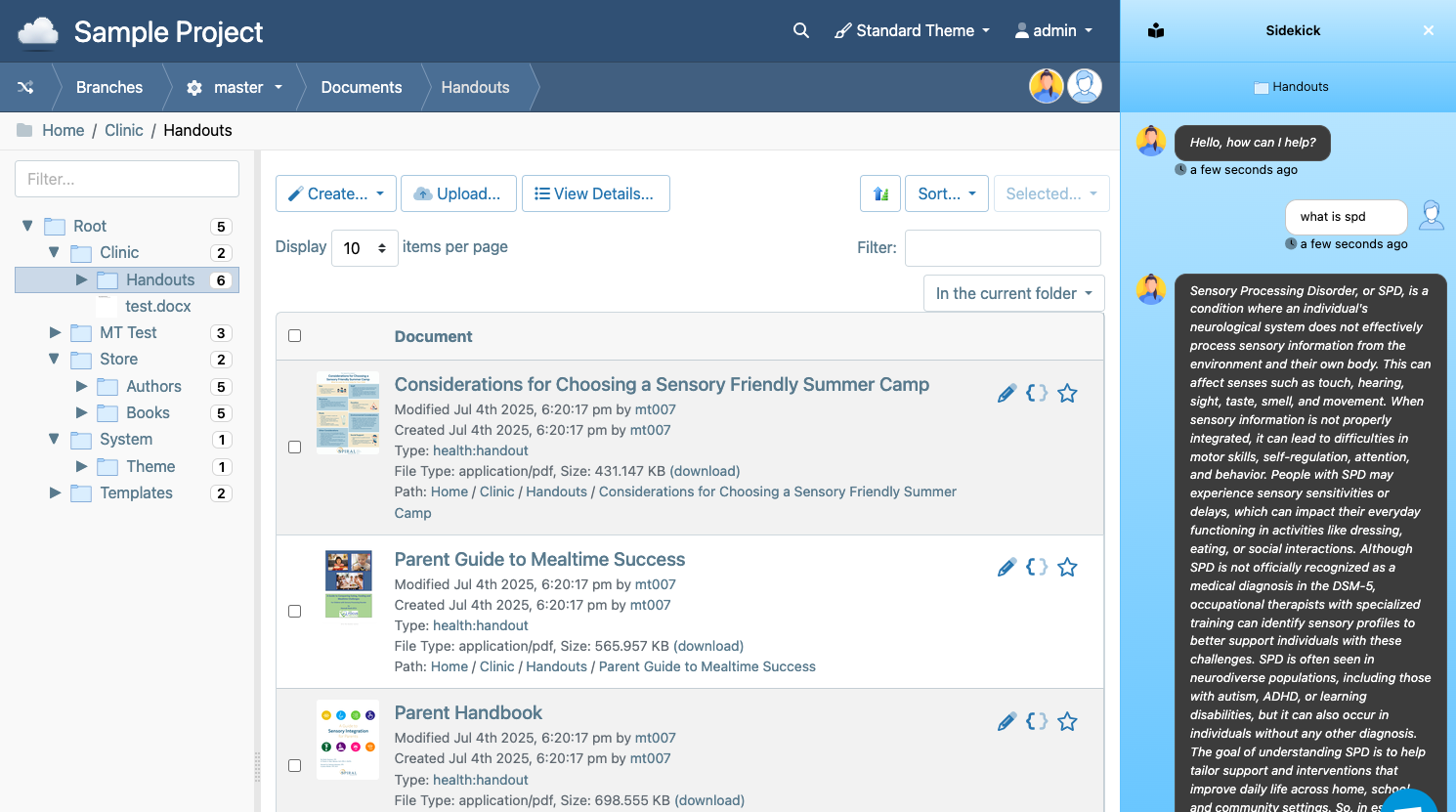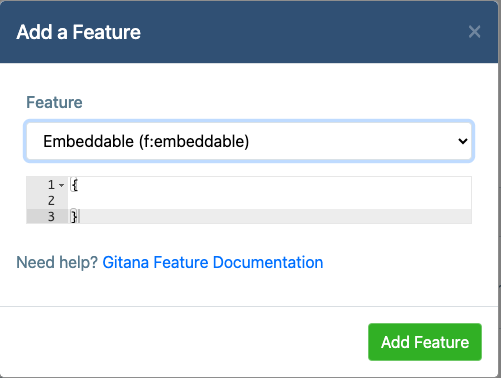Citations with Generative AI
| About this Article |
When a question is asked you hope for an honest accurate answer. This is often not the case and without due diligence can lead to delivering inaccurate and misleading information damaging to your business and customers. Alternatively, quality, well tested content will enhance your reputation and the value of your products and services.
Clearly this is not a new a concern or concept. However, AI highlights and multiplies the concern. AI systems do not have the ability to think or form beliefs. They operate algorithmically based on their training data, without any inherent capacity for reasoning or reflection. Given this context, users must approach AI outputs with a critical eye and evaluate them with human judgement.
Cloud CMS has features for allowing the user to ask questions on their content. We provide citations with the response which provide traceability, allow the user to verify responses, and where necessary tune the content accordingly.
Sidekicks
Sidekicks are our AI assistant(s). Converse with your sidekicks about the content that you are working on. Ask questions and glean insights on specific content instances, sets of content, folders or even your entire branch of content. Sidekick provides citations to indicate from where within your content the answer was sourced.

Embedding for Vectorized Search
Cloud CMS supports automatic property and attachment embedding for vectorized search. This is done via the Cloud CMS f:embeddable feature.
To use this, all you need to do is add the f:embeddable feature to your content instance (or content types depending on how you prefer to do things). By default, embeddable is turned off for nodes. That is to say, the base n:node type does not have the f:embeddable feature on it. This means that your content will not be included in the vectorized search - you'll have to add the f:embeddable feature to your content instances directly or add them to your content types as you see fit.

Examples
Example 1
Note: this example was run in the "Sample Project", Clinical folder
- Ask sidekick "What is the acronym spd"
- Result: the very sensible response with 3 citations.

Example 2
Note: this example was run in the "Sample Project", "Clinical" folder
- Create a word document which includes the sentence "Silly People Dancing (SPD), is very common adult recreational activity"
- Upload the word document to the "Clinical" folder. Make sure the file has the embeddable feature
- Ask sidekick “what is the acronym spd”
- Result: the very sensible response with 3 citations and 1 citation for the file I just added with the made up acronym.

Summary:
These examples show the usefulness of citations. In this example it is easy to see that questions users ask might not get the correct expected results. And this can get more complex (and real) when you consider that your content may be correct and accurate but other content used to in your vector search may not provide the accurate results you expect. Citations are a useful and important part of the tools assisting you to improve the quality of the content and what is delivered to various endpoints.
